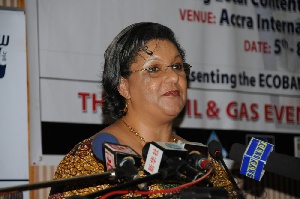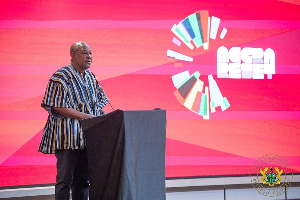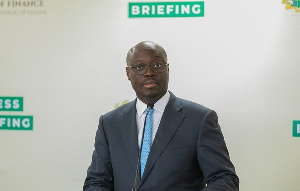Ms Hannah Serwaa Tetteh, the Minister for Foreign Affairs and Regional Integration, has said the West African region had identified the creation of a market for the free movement of goods of ECOWAS origin, as a priority in the integration of economic and trade affairs.
The creation of a single market, she said, was largely dependent upon a free Trade Area, Common External Tariff (CET), and Custom Union, and that it was in view of this that the sub-region intensified its efforts to implement the ECOWAS Trade Liberalization Scheme, and the adoption of the CET in January this year.
Ms Tetteh made this known when she delivered the keynote address at the opening of the Third National ECOWAS Stakeholders' Retreat at Elmina.
She indicated that ECOWAS Head of States and Government at their summit last year in Ghana resolved to work assiduously towards abolishing resident permit for ECOWAS citizens of member-states.
Ms. Tetteh, who is also the Member of Parliament for Awutu Senya West, said the ECOWAS Commission was subsequently mandated to work out modalities for the adoption and eventual introduction of biometric Identity Cards for community citizens by 2016.
She noted that while measures needed to be taken to ensure free movement of goods and services, other measures needed to be initiated to develop the region’s production capacity, remove all constraints and obstacles to intra-regional trade, and improve product quality, to meet international standards.
Mrs Mona Quartey, the Deputy Finance Minister, explained that the implementation of the CET of the Economic Community of West African States (ECOWAS), would offer additional incentives to the country’s domestic manufacturing sector.
This, she said, was because more than thousand raw materials currently taxed at 10 per cent would be reduced to five per cent when the CET became operational.
These raw materials, the Deputy Minister stated, include earth minerals, such as calcium and sodium; petroleum oils, such as natural gas and other in-organic chemicals and precious minerals.
The CET is one of the instruments that seeks to harmonize ECOWAS Member-States, and strengthen their common market.
Mrs. Quartey disclosed that the CET gave supplementary protection to the agricultural sector, than any other sector, indicating that more than 55 per cent of agricultural products were found in 20 per cent and 35 per cent tariffs band and none in zero per cent band.
Also, about 90 per cent of the agricultural products were in the 35 band, she stated.
She said a study on the impact assessment of the CET on various sectors of the economy had shown an improvement of customs revenue and that additional amount of the Government’s revenue was estimated to be 1.4 per cent of the total imports value.
The report, she said, showed total imports to be GH?93 billion, with an estimated revenue gain of GH?1.3 billion.
She said eight countries had successfully implemented the CET, while seven others, including Ghana, were about to start.
She said Ghana was working hard to meet the deadline agreed by member-states, and had already undertaken a series of activities to ensure the smooth and successful implementation.
The three-day retreat aimed at formulating a strategic policy document to clearly define Ghana's interest in the CET, and define the role key actors would play in the regional integration process.
It was also to strengthen the capacity of National Institutions to effectively support ECOWAS in the execution of its regional integration initiatives as well as evolve a strategic Plan of Action for proper engagement in the activities of the Community Institutions.
Business News of Wednesday, 22 July 2015
Source: GNA













